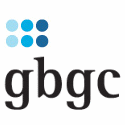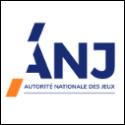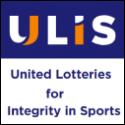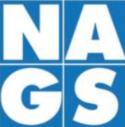The Supreme Court of Lithuania Confirmed: the Game Organized on the Air of the Radio Station Met the Characteristics of a Lottery
Vilnius, Lithuania (January 6, 2023) — In 2021, at the Gambling Supervision Service under the Ministry of Finance of the Republic of Lithuania (hereinafter – the Supervision Service). February 24 an investigation was launched in order to check whether the organization of the competition (data not published) published on the website (data not published) and carried out on the air of the radio station (data not published) (hereinafter – the competition) does not violate the requirements of the Law of the Republic of Lithuania on Lotteries (hereinafter – LĮ).
Supervisory services in 2021 September 30 by resolution, SZ was fined EUR 900 in accordance with Article 134, Part 2 of the Code of Administrative Offenses of the Republic of Lithuania (hereinafter – ANK) for the fact that on the air of the radio station in the period from 2021 February 1 until 2021 March 5 organized and conducted a competition that meets the characteristics of a lottery without having a license issued for the operation of lotteries.
2021 of the District Court of Vilnius City on December 7 the decision of the Supervision Service was left unchanged and the complaint of SZ brought to administrative responsibility was not satisfied.
2022 of the Vilnius District Court on January 27 by the ruling, the appeal of the lawyer V. Radvila of the SZ representative against the Vilnius City District Court in 2021. December 7 was rejected by the ruling.
2022 selection panel of judges of the Criminal Cases Division of the Supreme Court of Lithuania. April 14 at the request of SZ’s lawyer, who was held administratively liable by the ruling, the administrative offense case was reopened. The request to reopen the administrative offense case disagrees with the decisions of the Supervisory Service and both courts to recognize the game as a lottery.
In the case under consideration, it was established that the game “(data not published)” was played live on the radio station “(data not published)”. In order to participate in this game, individuals had to identify a track (or two or three tracks in a row) of the artist playing on the air and send a one-euro high-rate SMS while it was playing (or no more than 60 seconds after it ended) with the game’s code “(data not published)”, after which they were registered in the system as participants of this game and gained the right to win a prize of 30, 300 or 3000 EUR. The total prize fund of the game was EUR 30,000.
The Supreme Court of Lithuania in 2022 December 29 ruling in the administrative offense case left the ruling of the Vilnius District Court unchanged, reasoning that lotteries (like other gambling or games of chance) are activities that can cause damage to human health, strong addiction, negative financial consequences for individuals and families, lottery activities can be used to commit criminal acts, e.g. fraud, money laundering. Therefore, lottery activities in the Republic of Lithuania are licensed and strictly controlled by the state. Accordingly, persons performing lottery activities are subject to strict standards of transparency, fairness, financial stability, etc., for their activities. requirements, which are primarily related to the acquisition and possession of a license to operate lotteries.
The Supreme Court of Lithuania stated that according to Article 2, Part 4 of the Law, a game is classified as a lottery if it meets the following characteristics of a lottery established by the Law:
1) the player buys tickets, that is, pays for participation in the game (the amount of money paid is at risk);
2) participating in a game based on chance, based on luck;
3) it is possible to win monetary and/or in-kind prizes and/or gratuitous services.
The Supreme Court of Lithuania stated that the courts that examined the case correctly determined that the game “(data not published)” corresponds to the definition of a lottery established in Article 2, Part 4 of the Law, because:
First, a person’s participation in this contest was determined by the possession of a certain ticket, that is, the presence of a record in the database of the contest organizer. In order to participate in this contest, individuals had to send a short SMS message with the text “(the data not published)” with the text “(data not published)” to the specified phone number, and vice versa, individuals who did not send such a message could not participate in the game for the prize. This corresponds to the provision of Article 5, point 2 of the Law that lottery tickets can also be distributed by telephone – when the information required to participate in the lottery is transmitted to the database of the lottery computer system by telephone and a record confirming the player’s participation in the lottery is recorded in the database of the lottery computer system.
Second, the winners of the (data withheld) game were randomly selected. The main criterion for identifying a lottery is the requirement of randomness, which determines whether a person who has purchased a lottery ticket can win monetary and/or material prizes and/or gratuitous services. The criterion of randomness aims to distinguish the lottery from other games in which the winner is selected based on his skills, knowledge, and abilities. In the event that people participating in the lottery must use both certain skills (knowledge) and their winning depends on chance, it should be assessed which aspect (skills (knowledge) or chance) is dominant and determines the winner of the lottery.
Although individuals, in order to participate in the game, among other things, had to have certain knowledge and perform certain actions, that is, listen to the live broadcast of the radio station “(data not disclosed)” at a specific time, recognize the music being played, and send a short SMS message with the text in time “(data not published)” etc., but such actions were only the initial conditions for the possibility to purchase a ticket by sending an SMS message to participate in the game and claim the prize, and the decision of which people who participated in the game were considered winners depended on the random act – the decision of the producers of the program to select the winners of the cash prizes of the game. Thus, in the case under consideration, it is precisely chance that should be considered dominant, i.e. the random selection of individuals as winners.
Thus, the Supreme Court of Lithuania stated that the game “(data not published)” organized by SZ met the characteristics of a lottery established in Article 2, Part 4 of the Law and that the requirements of this law had to be followed during its organization and execution, including having the procedure set forth in Article 9 of this law for such activities issued license.
By: Gambling Supervision Service under the Ministry of Finance of the Republic of Lithuania
SOURCE: Government of the Republic of Lithuania.
Tags: Lithuania, Gambling Supervision Service, competition, Law on Lotteries, ANK, Vilnius District Court




























